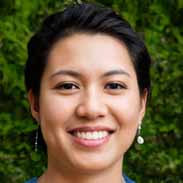experi psych 7 chp 11 – Flashcards
Unlock all answers in this set
Unlock answersquestion
1. The mathematical way to describe an interaction is: TRUE OR FALSE A difference in differences A caveat A qualified main effect A patterned pattern
answer
A difference in differences
question
2. Dr. Rhodes notices an interaction in his factorial study. In describing this, which statement might he use to explain the link between Independent Variable A and Independent Variable B in predicting the dependent variable? TRUE OR FALSE Variable A cancels out Variable B. The effect of Variable A depends on Variable B. The effect of Variable A is confused by Variable B. Variable A mainly affects Variable B. The effect of Variable A is mediated by Variable B.
answer
The effect of Variable A depends on Variable B.
question
?3. Which of the following is IS necessary for a study to be a crossed factorial design? There are at least two independent variables. The study examines every possible combination of independent variables. The data result in a crossover interaction.
answer
There are at least two independent variables. The study examines every possible combination of independent variables. *maybe,? researchers cross the two IDVs
question
4. In the case of a factorial design, another term for independent variable is: TRUE OR FALSE Interaction Main effect Cell Factor Moderator
answer
Main effect
question
5. The number of main effects that need to be examined is ________________ the number of independent variables.
answer
the same as,
question
?6. Which of the following CAN be said of the interaction in a study? It can be determined by examining a graph of the results. It can be determined by investigating marginal means. (main effects?) It can exist even if the main effects are not significant. It is almost always more important than a study's main effects.
answer
It can be determined by examining a graph of the results. It can exist even if the main effects are not significant. It is almost always more important than a study's main effects.
question
?7. Dr. Elder was interested in the way people recognize objects as members of categories. For example, what makes us recognize a dog as being a dog and not a cat? More specifically, he was curious as to whether people think about categories in a more complex way if they contemplate an "opposite" category first. For example, does a person think differently about the category of "southern" if they are also thinking about the category of "northern"? He is also curious as to whether people categorize differently if they are exposed to category members compared with generating category members. Dr. Elder has four groups of participants (with 30 people in each group). In Group A, participants were told to cut out pictures of dogs and cats from magazines. In Group B, participants were told to cut out pictures of just dogs from magazines. In Group C, participants were told to draw pictures of cats and dogs. In Group D, participants were told to draw pictures of just dogs. After doing this for 30 minutes, participants in all groups were asked to list the attributes that define the" dog" category. Having a higher number of attributes listed was considered to be an indication of thinking about the category in a more complex way. ---- QUESTION How many participant variables exist in Dr. Elder's study?
answer
. . . . . . . . . . . . . . . . . . . . . . . . . . A participant variable is one that the experimenter does not manipulate, but does select for measure . . . 0?
question
8. " QUESTION To make his study a 2 X 2 X 3 factorial design, which of the following would Dr. Elder need to do? TRUE or FALSE Add a second dependent variable (quality of the category attributes listed) Add a new manipulated variable (time to complete the task: 5 minutes versus 10 minutes versus 15 minutes) Add a new participant variable (sex: males versus females)
answer
Add a new manipulated variable (time to complete the task: 5 minutes versus 10 minutes versus 15 minutes)
question
9. " QUESTION What is the most likely reason Dr. Elder conducted a factorial design? To test if task type _____________ with the effect of activity focus.
answer
generalizes // interacts
question
?10. " QUESTION In Dr. Elder's study, how many possible main effects exist?
answer
4?
question
What are the two main reasons to use factorial designs?
answer
to test limits and to test theories



